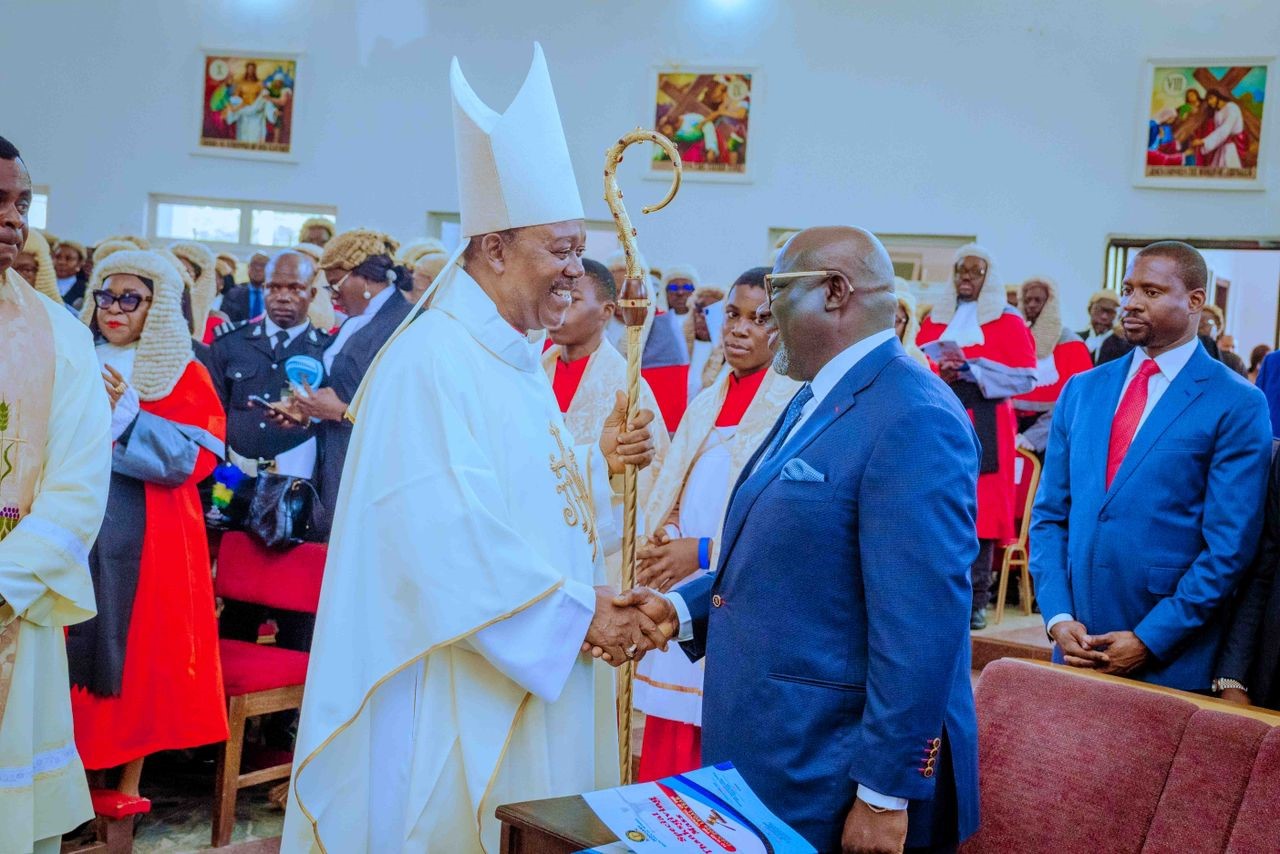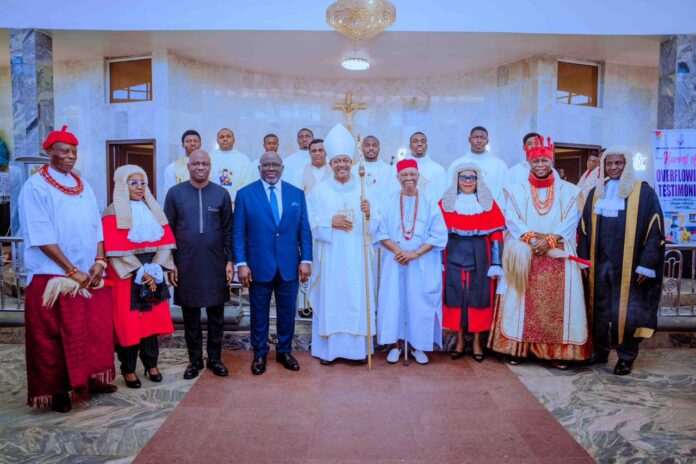…Vows Stricter Accountability, Improved Welfare, Stronger Justice System

BY SUNDAY EGEDE
Delta State Governor, Rt. Hon. Sheriff Oborevwori, has said his administration abolished the arbitrary upward review of contract sums in order to promote accountability, ensure value for money, and protect public resources in the state.
Governor Oborevwori made the disclosure today at the thanksgiving service marking the opening of the 2025/2026 Legal Year of the Delta State Judiciary, held at Emmanuel the Saviour Catholic Church, Asaba.
“We have ended the old practice of arbitrary review of contract sums and variations after agreements have been signed.
“Today, every state contract contains a clause that prevents such adjustments, and no contractor receives payment without a duly executed agreement.
“This is a major step towards transparency and responsible financial management in line with the Delta State Public Procurement Law of 2020,” he said.
The governor said the move was part of a broader commitment under his MORE Agenda — Meaningful Development, Opportunities for All, Realistic Reforms, and Enhanced Peace and Security- to strengthen good governance and uphold fiscal discipline.
He noted that the government’s partnership with the legislature had also yielded landmark laws in the electricity and health sectors, among others, as part of efforts to deepen the rule of law and transparency in governance.
“Our efforts in justice infrastructure, procurement, and law-making reflect our belief that democracy thrives best when there is synergy among the executive, the legislature, and the judiciary,” the governor said.
Oborevwori, who took the first reading from Isaiah 32:15–18, reaffirmed his administration’s resolve to sustain the independence of the judiciary, enhance its infrastructure, and make justice more accessible and efficient.
Highlighting his administration’s reforms in the public service, the governor recalled the approval of a 158 per cent increase in Delta’s minimum wage regime in October 2024, surpassing the Federal Government’s 133 per cent as part of its efforts to motivate workers and strengthen institutional efficiency.
He also disclosed that over ₦70 billion had been released to clear outstanding state pension arrears, including a fresh ₦10 billion intervention to the State Pensions Board, with an additional ₦2 billion released monthly to sustain payments.
On social welfare, Oborevwori said the government had launched a Widows’ Welfare Scheme, providing free healthcare and monthly stipends to 10,000 widows across the state, describing it as a reflection of the human face of his MORE Agenda.
He also listed several youth empowerment programmes such as MORE Grant Scheme, MORE WISE-Up, MORE ICT, and MORE Biz-Up, which are helping thousands of small businesses and artisans become self-reliant and economically active.
Prospecting the future, Governor Oborevwori pledged continued investment in judicial infrastructure and technology, including automatic recording systems, e-filing, e-payment, and virtual hearing facilities in courts across the state.
He urged all arms of government to remain united in the pursuit of justice and fairness, emphasizing that peace and progress could only thrive where the rule of law prevails.
“The executive, legislature, and judiciary are partners in service. Each arm depends on the other to function effectively.
“Together, we must continue to uphold the rule of law and ensure that every Deltan can live, work, and dream in a society governed by justice and fairness,” he added.
Earlier in his homily, the Bishop of Issele-Uku Catholic Diocese, Most Rev. Michael Elue, charged members of the judiciary to discharge their duties with integrity, courage, and the fear of God, describing judges as partners with God in the administration of justice.
According to him, the law demands integrity, adding that the robe of a judge is not just a symbol of authority but a garment of restraint, of humility, and of conscience.
“You must, therefore, have rules of conduct in your dealings with the public — not as mere formality, but as a shield against the temptations of pride, favoritism, or bribery.
“Every day, you are confronted with trials — not just in court, but within your conscience: the pressure of influence, the lure of money, the threat of power. Yet in all these, when man fails, God takes over. And indeed, it is only in God’s court that perfect justice is found,” the Bishop added.
The event was attended by top government functionaries, members of the bench and bar, traditional rulers, and other dignitaries from across the state.


